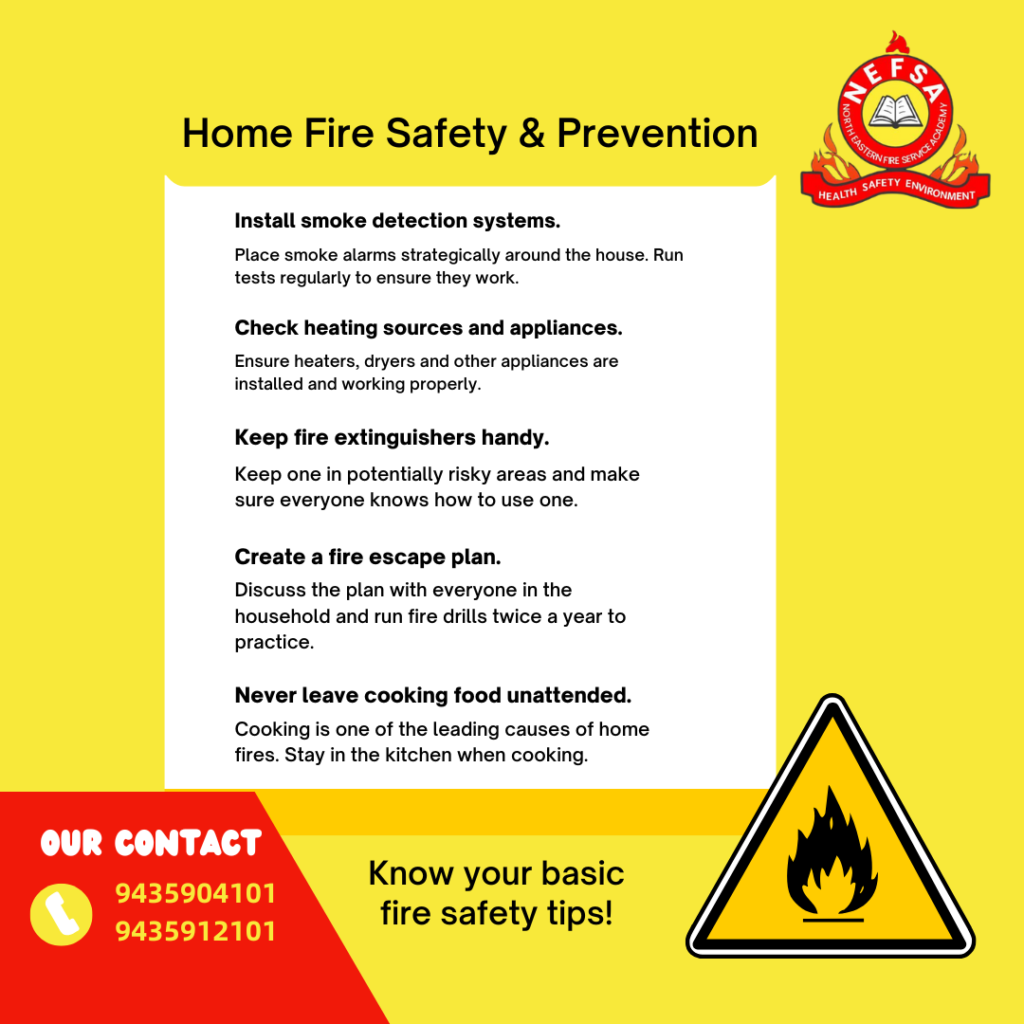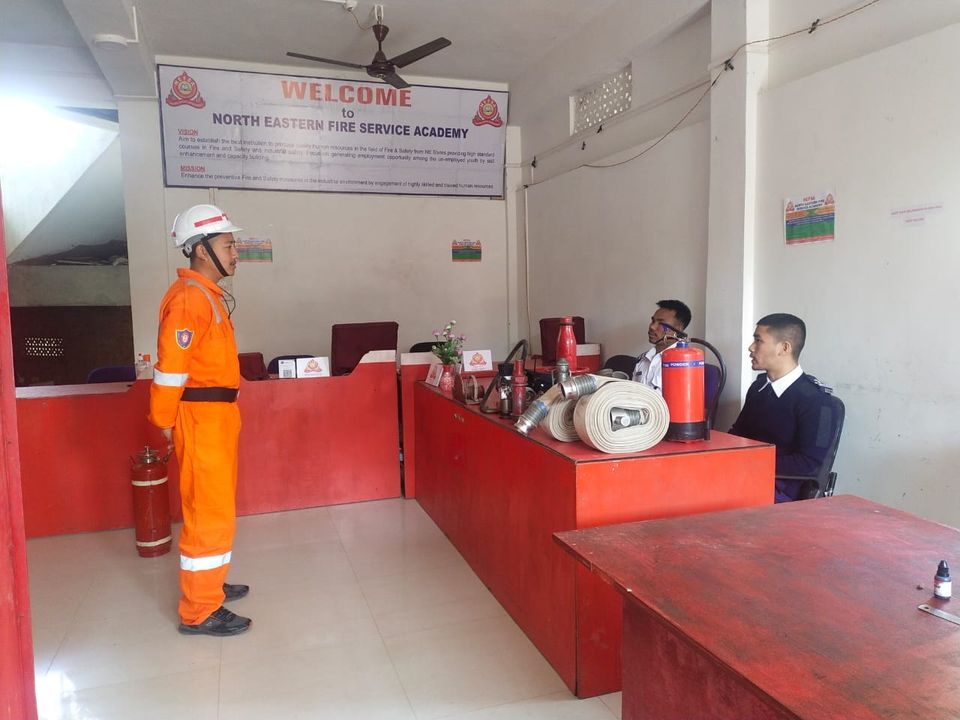Fire safety is a critical aspect of safeguarding lives and property. At NEFSA Fire Academy, we understand the importance of being prepared to handle fire emergencies effectively. Whether at home, work, or public spaces, fire safety knowledge can make a significant difference in preventing disasters. Here’s a guide to essential fire safety tips to help you stay prepared and stay safe.
1. Understand the Causes of Fire
Fires can start from various sources, including:
- Electrical issues: Faulty wiring, overloaded circuits, or malfunctioning appliances.
- Cooking accidents: Unattended cooking is a leading cause of residential fires.
- Flammable materials: Improper storage of flammable liquids or substances.
- Negligence: Unattended candles, cigarettes, or open flames.
Understanding these causes helps in taking proactive steps to prevent fires.
2. Install and Maintain Fire Safety Equipment
Having the right equipment is essential for fire safety:
- Smoke alarms: Install them in key areas of your home or workplace and test them monthly. Replace batteries regularly.
- Fire extinguishers: Keep them in accessible locations, such as the kitchen and near exits, and learn how to use them effectively.
- Fire blankets: Especially useful in kitchens to smother small fires.
Regular maintenance ensures these tools function properly during emergencies.
3. Create an Emergency Evacuation Plan
Every household and workplace should have a well-defined fire evacuation plan. Key elements include:
- Identifying escape routes: Mark two exits from each room, if possible.
- Establishing a meeting point: Decide on a safe location outside the building.
- Practicing fire drills: Conduct regular drills to ensure everyone knows what to do.
4. Educate and Train Everyone
Fire safety is everyone’s responsibility. NEFSA emphasizes:
- Basic fire safety training: Teach family members and employees how to use fire extinguishers and alarms.
- Awareness sessions: Regularly update people on fire safety protocols.
- First aid skills: Knowing how to treat burns or smoke inhalation can save lives.
5. Practice Safe Habits
Adopt habits that minimize fire risks:
- Turn off appliances: Unplug devices when not in use.
- Be cautious with open flames: Never leave candles or stoves unattended.
- Store flammable materials safely: Keep them in designated, well-ventilated areas.
6. Know When to Call for Help
In case of a fire, prioritize safety:
- Alert everyone: Sound the alarm and evacuate immediately.
- Call emergency services: Provide clear information about your location.
- Stay outside: Never re-enter a burning building.
Why Choose NEFSA Fire Academy?
NEFSA Fire Academy is committed to creating a safer community through comprehensive fire safety training. Our programs cover:
- Advanced fire-fighting techniques.
- First responder training.
- Emergency evacuation planning.
By equipping individuals and organizations with life-saving skills, we contribute to a culture of safety and preparedness.
Conclusion
Fire safety is a shared responsibility that requires awareness, preparation, and the right resources. By following these essential tips and leveraging training from NEFSA Fire Academy, you can ensure the safety of your loved ones and property. Stay vigilant, stay prepared, and always prioritize safety.
Have questions about fire safety training? Contact NEFSA Fire Academy today and take the first step towards a safer tomorrow!
Contact Details
📞 Phone: 9435904101 | 9435912101
📧 Email: nefsaindia@gmail.com
🌐 Website: https://nefsaindia.com/
For more Blog : Click Here
Join Us :- Click here







